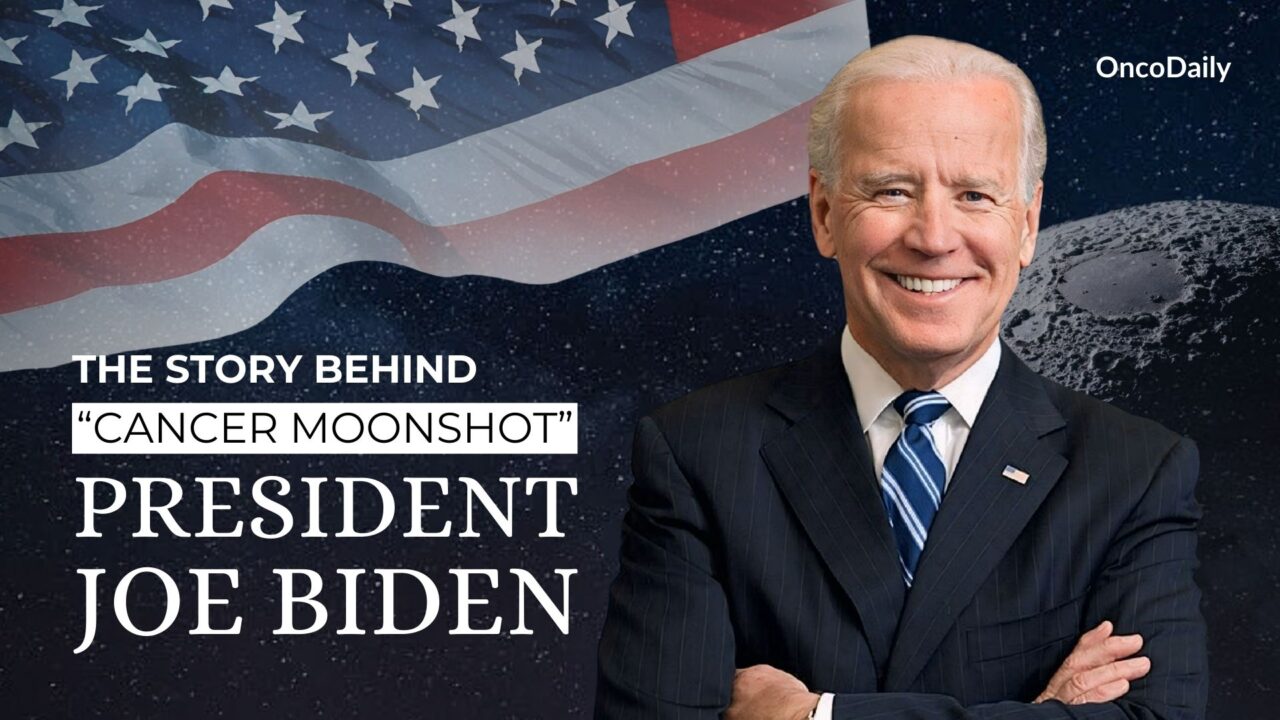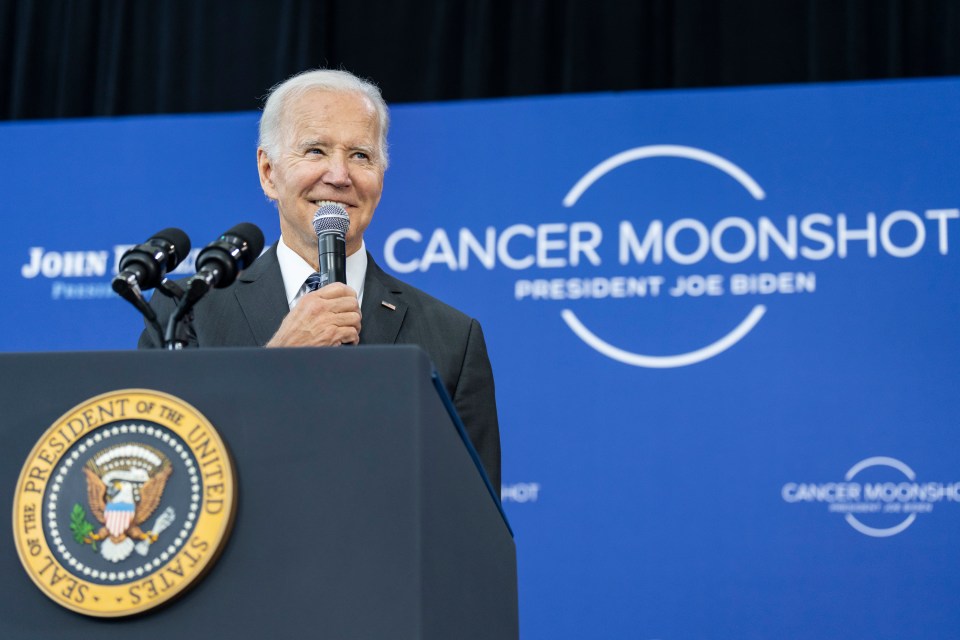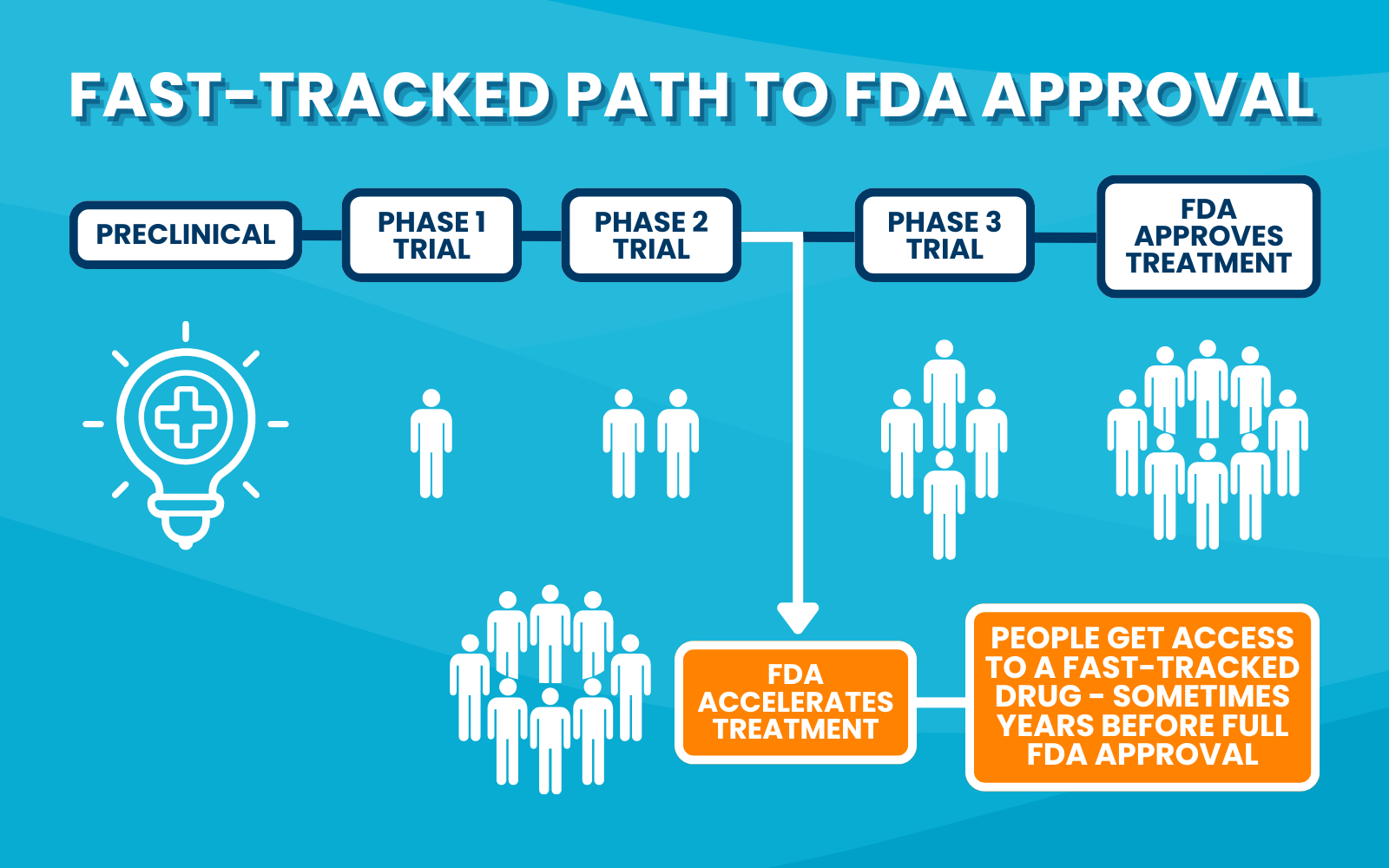
Why President Biden Values Cancer Research So Much: The Story Behind Cancer Moonshot
President Joe Biden’s deep connection to cancer research and care goes beyond politics—it’s personal. The loss of his son, Beau Biden, to brain cancer in 2015 became driving force behind Biden’s efforts to make cancer research, treatment access, and patient care a national priority.
First Lady Dr. Jill Biden got personal during an interview at the meeting for Foundation for Black Women’s Wellness.
“Every woman and man here knows cancer touches us all, and it changes everyone. Joe and I knew that we had to find purpose to deal with the grief that we felt after his death”

Biden made it his mission to accelerate cancer research and improve patient outcomes. In 2016, he launched the Cancer Moonshot initiative, aimed at cutting cancer death rates by half over the next 25 years. This initiative became a central focus of his efforts, leading to new partnerships, investments, and breakthroughs in the oncology field. Through the National Cancer Institute (NCI), Biden has pushed for increased funding for advanced cancer research, focusing on early detection, immunotherapy, and precision medicine.
“I know we’re not the only family that’s faced cancer. Millions of Americans have gone through it. But I’m in a position to do something about it, and I’m not going to rest until we’ve made real progress.”
One major outcome of the Cancer Moonshot was the creation of the Beau Biden Cancer Moonshot Initiative, which has brought together leaders in the oncology field. Dr. Ned Sharpless, the former director of the NCI, has noted.
“Biden’s leadership has fundamentally shifted the way we approach cancer research in this country. ”
The Cancer Moonshot: Biden’s Signature Initiative to Cut Cancer Death by 50%
In 2016, President Joe Biden launched the Cancer Moonshot, an ambitious initiative with one clear goal: to accelerate cancer research and cut cancer death rates by 50% over the next 25 years. Backed by the 21st Century Cures Act, the initiative secured $1.8 billion in federal funding over seven years to accelerate cancer research and treatment breakthroughs.
The Cancer Moonshot focuses on advancing cancer research at an unprecedented pace, aiming to make 10 years of progress in just 5 years. It promotes collaboration between scientists, research institutions, pharmaceutical companies, and patient advocacy groups, all working together to find cures faster and improve patient outcomes.
Through the Moonshot, spearheaded by the National Cancer Institute (NCI) over 70 programs and 250 research projects have been supported, driving advances in critical areas like immunotherapy, childhood cancer research, and early detection. These efforts also prioritize reducing health disparities, ensuring that cancer care reaches everyone, regardless of income or location.
”It’s not just about developing new treatments and better prevention, it’s about ensuring access and improving how care is delivered within communities and promoting health equity”
Dr. Ned Sharpless, the former director of the NCI talking about Cancer Moonshot Initiative.

Key Achievements and Projects
- Improving Immunotherapy: The creation of the Immuno-Oncology Translational Network (IOTN) has led to significant insights into how ovarian and head-and-neck cancers respond to immunotherapy. Additionally, the Pancreatic Cancer Microenvironment Network (PaCMEN) focuses on the role of tumor-associated immune cells in blocking chemotherapy effectiveness.
- Advancing Childhood Cancer Research: The Pediatric Immunotherapy Discovery and Development Network (PI-DDN) is working to overcome barriers in developing immunotherapies for children. A notable outcome is research into therapies for children with B-cell acute lymphoblastic leukemia that have recurred or resisted treatment.
- Mapping Tumors: The Human Tumor Atlas Network (HTAN) is constructing 3D maps of tumors, enabling researchers to track the evolution of cancers at the cellular and molecular levels. These maps are critical for identifying how tumors develop resistance to treatments.
- Expanding Cancer Prevention and Early Detection: Programs like ACCSIS are focused on increasing colorectal cancer screenings, particularly in underserved populations, and are driving the implementation of proven cancer prevention strategies.
- Addressing Drug Resistance: The Drug Resistance and Sensitivity Network (DRSN) is investigating how tumors develop resistance to therapies, with the aim of developing innovative treatments that target these resistant cancer cells.
2022 and Beyond: New Initiatives
In 2022, the next phase of the Cancer Moonshot was launched with a focus on bold new goals, including reducing cancer death rates by 50% over the next 25 years. Several new initiatives have already begun:
- Multi-Cancer Detection Tests: The NCI Multi-Cancer Detection (MCD) Test Vanguard Study is a groundbreaking trial enrolling 24,000 people to evaluate the effectiveness of blood tests that can detect multiple cancers at early stages.
- Cancer Moonshot Scholars: This early-career grant program is designed to build a cancer research workforce that reflects the diversity of the U.S. population. The program plans to fund at least 45 investigators with up to $135 million in grants.
- Telehealth Research Centers: The Telehealth Research Centers of Excellence (TRACE) initiative is exploring how telehealth can improve access to cancer care, especially for underserved populations. The NCI is investing $23 million over five years in this program.
The Cancer Moonshot continues to evolve, driving innovation, improving cancer care, and paving the way for future discoveries in oncology. By fostering unprecedented collaboration and data sharing, this initiative is pushing the boundaries of what’s possible in cancer treatment and prevention.

As Biden explained during the Moonshot’s launch.
“We’re at an inflection point. We have the science, we have the data, we have the tools. It’s now about harnessing all of that and pushing forward.”
How the Biden Administration Expanded Cancer Treatment Access?
One of the major difficulties in cancer care is the high cost of treatments and the difficulty many patients face in accessing the latest therapies, even for high income-countries, cancer patients are nearly 5 times more likely to experience bankruptcy according to American College of Surgeons Report in 2022.
Through the Cancer Moonshot, Biden has worked to reduce the time it takes for new treatments to reach patients. His administration has focused on speeding up the process of drug development and approval while ensuring these treatments are accessible to all, not just those with the financial means.
Biosimilars for Affordable Care
In 2021, President Biden signed two bipartisan bills aimed at promoting the use of biosimilars, more affordable alternatives to expensive biologic drugs. These laws were designed to reduce prescription drug prices, making life-saving treatments more accessible, particularly for cancer patients. By 2024, the FDA had approved several key biosimilars under this initiative.
In the first quarter of 2024, three interchangeable biosimilars were approved: Simlandi (biosimilar to Humira), Jubbonti (biosimilar to Prolia), and Wyost (biosimilar to Xgeva). For instance, Simlandi offers discounts of up to 85% off the wholesale acquisition cost (WAC), making treatments for conditions such as rheumatoid arthritis and cancer-related bone complications more affordable.
Additionally, in April 2024, the FDA approved Hercessi (trastuzumab-strf), a biosimilar to Herceptin (trastuzumab), used for treating HER2-overexpressing breast cancer and gastric cancers. This marked a significant step in expanding treatment options for patients with aggressive HER2-positive cancers. Similarly, Avzivi (bevacizumab-tnjn), approved in December 2023 as a biosimilar to Avastin (bevacizumab), is indicated for cancers like metastatic colorectal cancer and non-small cell lung cancer, providing a cost-effective option for patients. These competitive pricing strategies are designed to encourage market entry and provide cost-effective alternatives for patients.
Advancing Clinical Trial Accessibility
Historically, clinical trials have been difficult to access, particularly for minority and low-income populations. To address this, the Biden-Harris administration launched the Advancing Clinical Trial Readiness (ACTR) initiative. This effort ensures that 90% of eligible Americans will have access to clinical trials within 30 minutes of their homes by expanding trials to community health centers, retail pharmacies, and other local care settings.
By decentralizing clinical trials, the ACTR initiative removes long-standing barriers and makes it easier for patients from all backgrounds to participate in potentially life-saving research.
As Biden said,
“Everyone deserves a fair shot at surviving cancer, regardless of their background or income.”
His administration is committed to making sure that patients across the country can access novel treatments without being overwhelmed by the costs often associated with cancer care.
President Biden, Cancer Moonshot, and Medicare Reforms: Lowering Cancer Drug Costs for Beneficiaries
President Joe Biden has been committed to improving access to affordable cancer care, a mission that began during his time as Vice President. Under his leadership, major reforms to Medicare Part D are addressing the high cost of cancer drugs.
Through the Affordable Care Act (ACA), which Biden helped implement during his tenure as Vice President, cancer patients have benefited from increased access to health insurance. The ACA prohibits insurance companies from denying coverage due to pre-existing conditions, such as cancer. This has been a game-changer for many, allowing cancer patients and survivors to obtain and maintain the coverage they need for ongoing treatment and care.
In August 2022, Biden signed the Inflation Reduction Act (IRA), which includes a $2,000 annual out-of-pocket cap on Medicare prescription drug spending starting in 2025. This cap will provide significant savings for cancer patients. Analysis shows that Medicare beneficiaries taking anti-neoplastic drugs will save an average of $7,590 annually, with some saving up to $19,296.
In a public statement, Biden emphasized.
“No American should have to choose between paying for their cancer treatment or putting food on the table.”
Building on the Cancer Moonshot, Biden expanded Medicare navigation services to help patients manage treatment logistics, improving access and outcomes. These services, covered under Medicare, guide patients through complex billing, treatment options, and care coordination.
Breaking Barriers: Biden’s Efforts in Drug Development and Approval for Cancer
Under President Joe Biden, significant strides have been made to accelerate the approval of cancer treatments, breaking down the barriers that often delay life-saving drugs from reaching patients. One of the biggest challenges in cancer care has been the time it takes for new drugs to move from lab to patient. Biden’s administration has focused on fast-tracking the approval process through advanced cancer research and regulatory reforms without sacrificing safety.
A cornerstone of this effort is the 21st Century Cures Act, passed with Biden’s support in 2016. This law streamlines the FDA approval process for drugs showing early promise in treating life-threatening diseases like cancer. As a result, between 2020 and 2022, 46 cancer drugs received accelerated approval, allowing patients to benefit from breakthrough therapies more quickly. For example, 63% of cancer drugs granted accelerated approval from 2013 to 2017 were converted to regular approval by 2022 after demonstrating their clinical benefits.

Biden has also fostered public-private partnerships, encouraging collaboration between government agencies, academic institutions, and pharmaceutical companies. This multidisciplinary approach, led by the FDA’s Oncology Center of Excellence (created during Biden’s vice presidency), has revolutionized the way cancer treatments are developed and approved. The emphasis on rare cancers has expanded treatment options for those with limited alternatives.
The administration has pushed for increased funding to the National Institutes of Health (NIH) and National Cancer Institute (NCI), recognizing the importance of a well-supported research ecosystem for drug innovation. This has led to the rapid development of novel treatments in areas like immunotherapy and precision medicine.
As Dr. Janet Woodcock, former FDA acting commissioner, remarked, “Biden’s commitment to improving the drug approval process has had a significant impact on the way we approach cancer treatment. Patients are seeing real benefits.”
Key Achievements:
- Accelerated Approvals: Between 2020-2022, 46 cancer drugs received accelerated approval.
- FDA Innovations: The Oncology Center of Excellence has streamlined cancer drug evaluations.
- Emphasis on Rare Cancers: Approval focus on rare cancers expanded treatment options.
- Funding Increases: Biden’s administration has increased funding to NIH and NCI for advanced cancer research.
How Cancer Moonshot Will Shape the Future?
President Joe Biden has an ambitious, yet practical, vision for the future of oncology research, emphasizing a global, coordinated effort to “end cancer as we know it.” A key part of this vision is Biden’s commitment to advancing precision medicine, which tailors cancer treatments based on the unique genetic makeup and traits of each patient. This approach moves away from the traditional “one size fits all” treatments and instead focuses on offering therapies targeted specifically to the individual’s cancer.
“The future of cancer research lies in our ability to share information, collaborate across sectors, and use the best of what science and technology have to offer.”
Biden’s administration has been instrumental in promoting advanced technologies like artificial intelligence (AI) and machine learning in oncology. These technologies analyze large amounts of data, identifying patterns that could lead to breakthroughs in cancer biology, early detection, and treatment options. Biden has called these developments “the cusp of breakthroughs that were once unimaginable.”

The launch of the Advanced Research Projects Agency for Health (ARPA-H) under his administration has significantly boosted innovation. One notable program is the Precision Surgical Interventions (PSI) initiative, which aims to develop technologies to improve tumor removal surgeries. In 2023, Biden announced up to $150 million in ARPA-H awards to support eight research teams across the U.S. working on more effective surgical methods for cancer treatment. In his own words, Biden said;
“We’re moving quickly because we know that all families touched by cancer are in a race against time.”
The National Cancer Institute (NCI), under this initiative of Cancer Moonshot, has supported over 240 research projects, driving advances in critical areas such as immunotherapy and addressing treatment resistance.
Joe Biden, a Family Member of a Cancer Patient, Becomes a Strong Advocate for Cancer Survivors
Joe Biden’s commitment to cancer survivors is deeply personal. After losing his son Beau to brain cancer, Biden became a vocal advocate for cancer patients and their families. His approach goes beyond policy—he emphasizes the importance of patient advocacy and emotional support for those facing cancer.
Under his leadership, programs have expanded to provide mental health resources for cancer survivors and their families. Biden recognizes that surviving cancer isn’t just about physical treatment; it’s also about managing the emotional challenges. His administration has prioritized offering mental health services to help patients navigate the complexities of treatment and recovery.
A key initiative is the Cancer Moonshot Survivorship Task Force, which focuses on improving the quality of life for cancer survivors. This includes addressing long-term needs like financial support, managing the lasting effects of treatment, and ensuring access to palliative care for terminal patients, allowing them to live with dignity.
Patient advocacy groups, such as the Cancer Support Community, have praised Biden’s efforts. Kim Thiboldeaux, CEO of the organization, noted Biden’s understanding of the emotional toll cancer takes:
“No one understands the importance of this work better than President Biden, a father who lost his son to cancer and a caregiver who has personally faced the challenges so many families endure.”
What’s Next for Cancer Care in America?
Looking ahead, President Joe Biden’s administration is set to make significant progress in cancer care, with a focus on accessibility and equity. Biden has consistently highlighted cancer care as a top priority, particularly for underserved communities.
The second phase of the Cancer Moonshot aims to build on its previous success by investing in early detection technologies, improving cancer screenings, and targeting rare cancers. Biden believes we are now closer than ever to finding a “cure for certain cancers” due to the rapid advancements in research and treatment technologies.
His administration is also reshaping how cancer care is delivered across the U.S., focusing on expanding telehealth services and remote monitoring to improve access to treatment, particularly in rural and underserved areas. Biden’s vision includes supporting community health centers and making cancer care more affordable, ensuring no one is left behind.
Biden is pushing for increased federal funding for cancer research, encouraging public-private partnerships that expedite bringing lifesaving drugs to market—without compromising affordability or accessibility.
“The fight against cancer isn’t just a medical battle—it’s a moral imperative”
Biden often says, emphasizing his dedication to making the U.S. a global leader in cancer research and treatment.
As Jon Retzlaff, chief policy officer at the American Association for Cancer Research, states:
“President Biden’s passion and commitment have made monumental differences for the entire cancer community, including those who are suffering from cancer.”
Former President Barack Obama also acknowledged Biden’s personal mission in the fight against cancer, noting.
“Joe took this on as a mission because of what happened to his family, but it’s much bigger than that now. He’s turned his grief into action for millions of people fighting this disease.”
-
Challenging the Status Quo in Colorectal Cancer 2024
December 6-8, 2024
-
ESMO 2024 Congress
September 13-17, 2024
-
ASCO Annual Meeting
May 30 - June 4, 2024
-
Yvonne Award 2024
May 31, 2024
-
OncoThon 2024, Online
Feb. 15, 2024
-
Global Summit on War & Cancer 2023, Online
Dec. 14-16, 2023



